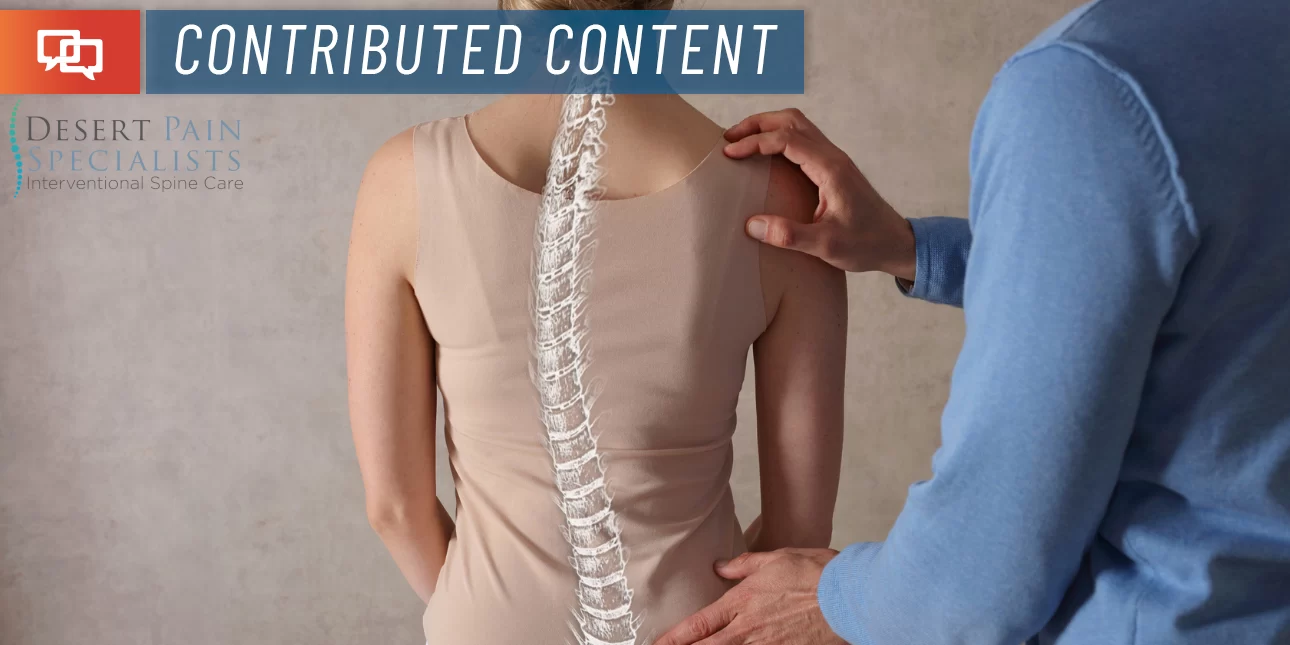Medical science continues to develop exciting advancements in the treatment of chronic pain. At Desert Pain Specialists, Southern Utah’s most established pain clinic, cutting-edge implantable devices like spinal cord stimulators and peripheral nerve stimulators are providing long-term relief for patients with conditions that were previously difficult to manage through neurostimulation technology.
“One patient had to retire early as a high school basketball referee due to low back pain,” interventional pain management specialist Dr. Steven Larsen said. “After receiving a peripheral nerve stimulator, he was able to successfully referee the entire next season.”
Spinal cord stimulation, a minimally invasive surgical procedure, represents a new hope for patients suffering from chronic pain that hasn’t responded to more conservative treatment methods. It’s recommended for many patients with chronic non-surgical back pain, chronic back pain despite corrective surgery, chronic nerve pain in the legs originating from the spine, diabetic peripheral neuropathy and complex regional pain syndrome.
The neurostimulation technology procedure utilizes an implanted device that sends low levels of electricity directly into the spinal cord to relieve pain. The surgeon will place thin wires, called electrodes, into the epidural space between the spinal cord and the vertebrae that connect to a small, pacemaker-like battery pack inserted under the skin. Spinal cord stimulators allow patients to transmit the electrical impulses using a handheld remote control whenever they feel pain.
Medical experts still don’t completely understand the mechanism behind spinal cord stimulation, but research shows it may target multiple muscle groups directly from the spine and even change how the brain senses pain. Spinal cord stimulation can improve sleep and overall quality of life, allowing patients to participate in a broad spectrum of activities while reducing the need for pain medications.
Peripheral nerve stimulation
When pain affects the nerves beyond the brain and spinal cord, peripheral nerve stimulation may be the key to unlocking a more comfortable and functional life. Desert Pain uses peripheral nerve stimulation for chronic nerve pain in common areas such as the shoulder, knee and low back. For these patients, therapies and medications have failed to provide any significant relief.
The peripheral nerves run from the spinal cord to limbs and organs throughout the body. Peripheral nerve stimulators work much like spinal cord stimulators, except that their mild electrical currents directly target the nerves in a specific area of the body. Electrodes are placed along the length of the nerve and connected to an implanted device.
Once the peripheral nerve stimulator is turned on, the electrical current tricks the brain into experiencing pain signals as pleasurable tingling sensations instead. Patients can control the current level by turning the device on and off and adjusting stimulation parameters as needed. Many patients are able to significantly reduce or discontinue their pain medications altogether.
Desert Pain performs thorough evaluations to determine whether a patient will be a good candidate for neurostimulation technology. Both spinal cord stimulation and peripheral nerve stimulation require a trial before permanent implantation.
For patients considering neurostimulation treatment, Larsen said they can increase their chances of long-term success by using the procedure in conjunction with lifestyle changes targeted at managing chronic pain.
“First, optimize your sleep, your daily physical fitness, your nutrition, your social relationships and your emotional well-being, and then use neurostimulation as a tool,” he added. “We need everything to work together.”
Desert Pain is a team of highly skilled specialists seeking to improve patient quality of life through innovative pain management solutions. The clinic stands at the forefront of treating acute and chronic pain in Southern Utah by offering patients shorter wait times and more one-on-one attention from compassionate physicians and advanced practitioners trained in the latest procedures. Call 435-216-7000 or visit DesertPainSpecialists.com to schedule an appointment today.
Written by ALEXA MORGAN for St. George News.







